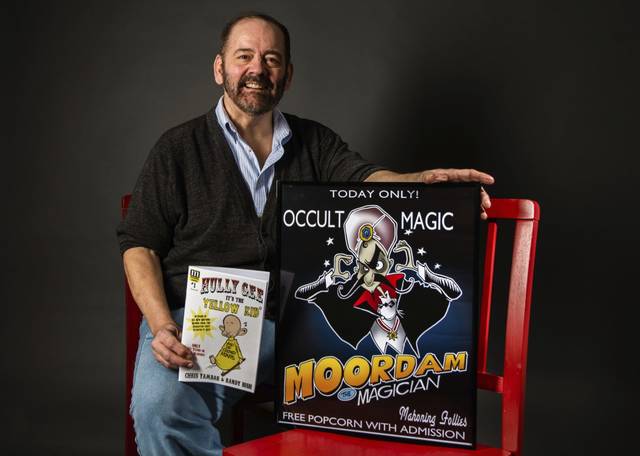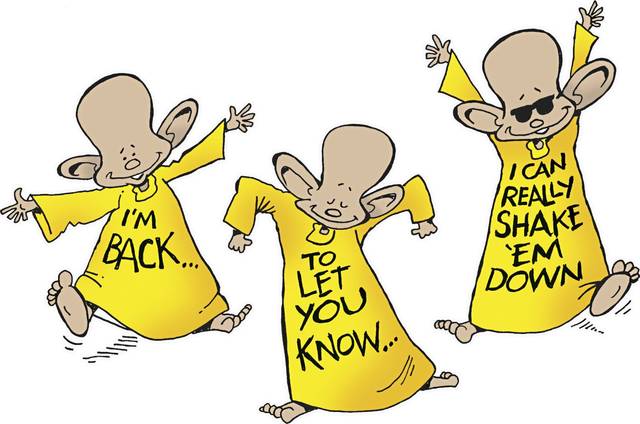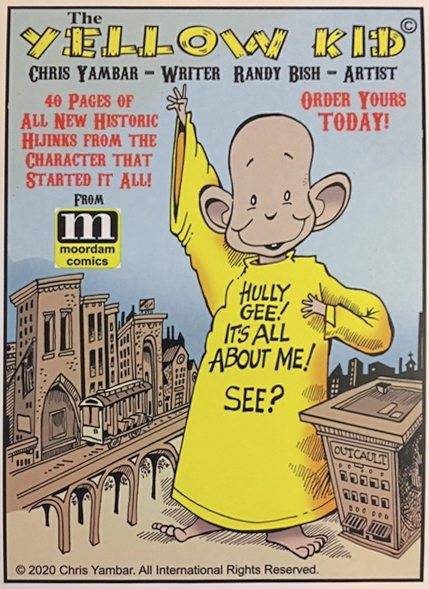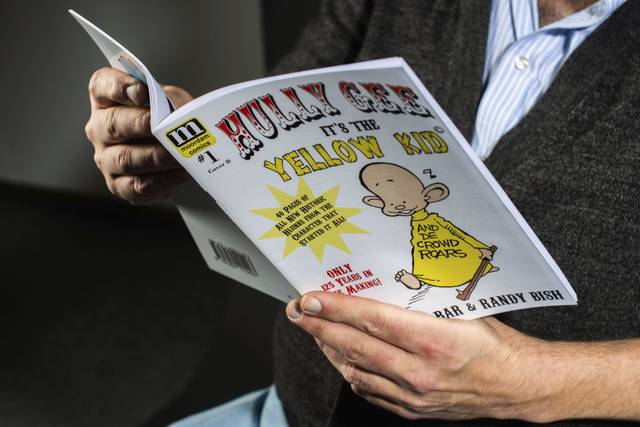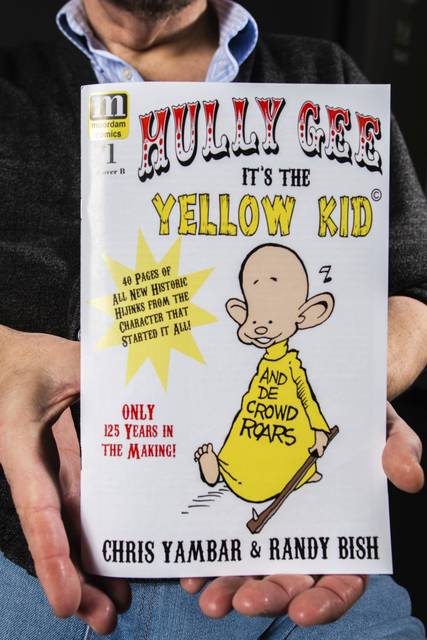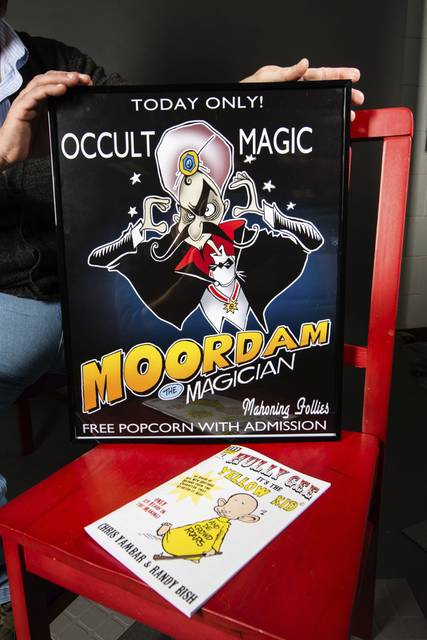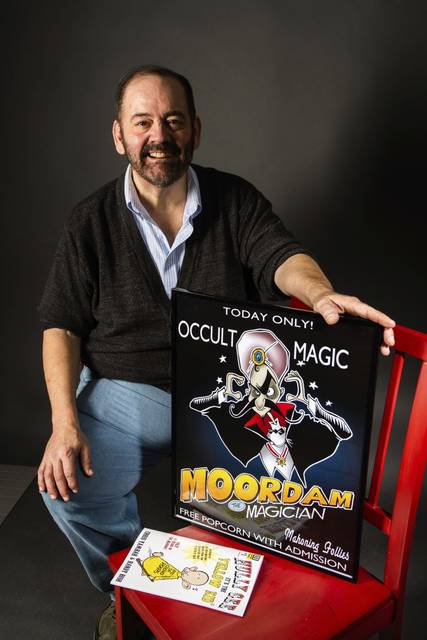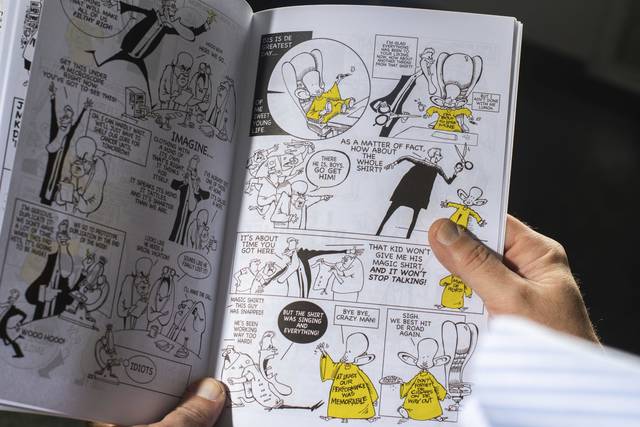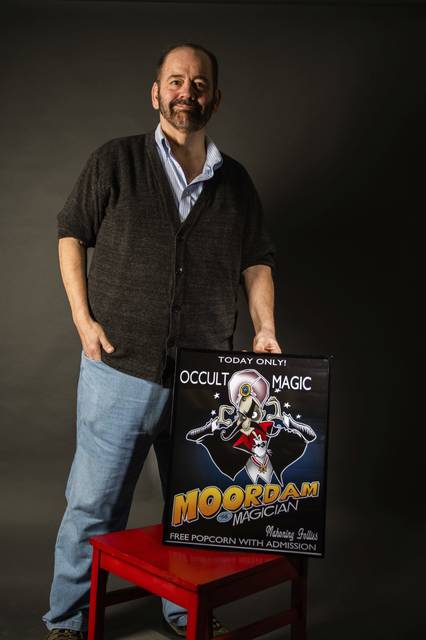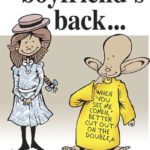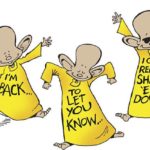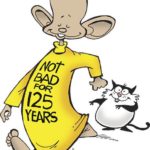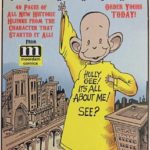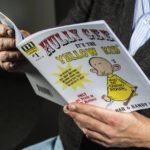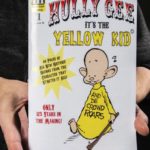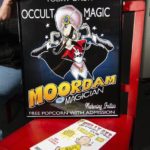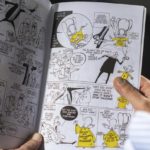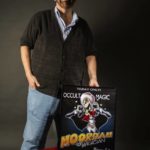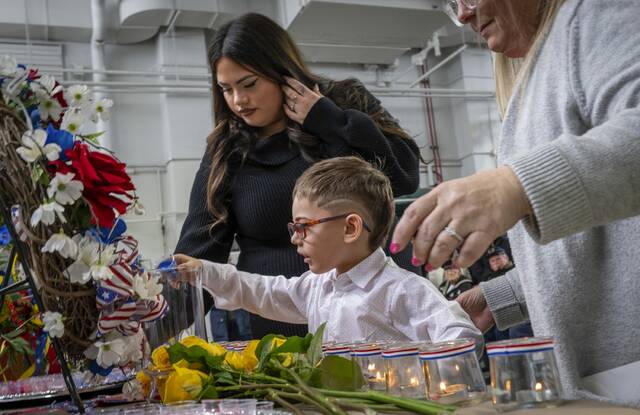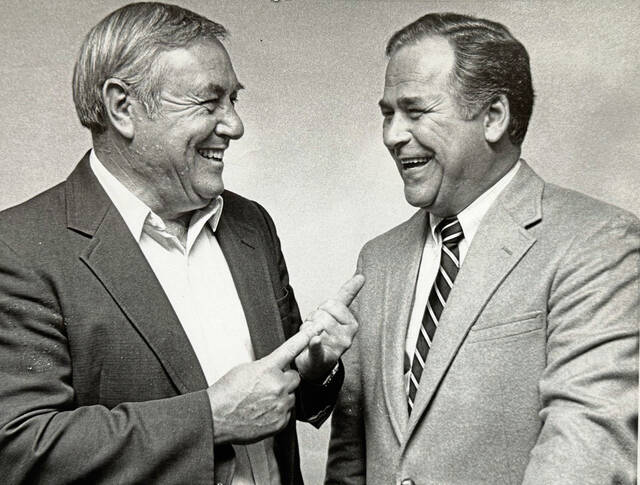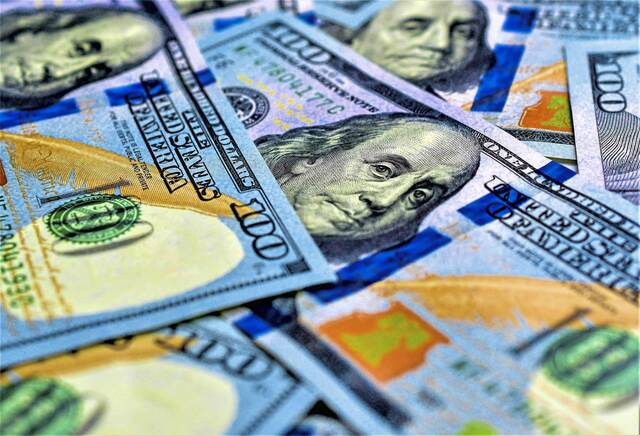A longtime editorial cartoonist and a comics writer meet at an arts festival, admire each other’s work and strike up a friendship.
No, it’s not the set-up for a punchline, but rather collaboration of like minds among two of the biggest fans of a century-old newspaper comic-strip character: The Yellow Kid.
Randy Bish, 57, of Hempfield, was the Tribune-Review’s editorial cartoonist from 1985 through 2016. His work continues to be syndicated via Pennsylvania NewsMedia, Cagle Cartoons and The Fourth Estate.
“In my high school yearbook, under future plans, I wrote, ‘I’m going to be a famous cartoonist,’ ” he says. “It worked out.”
Chris Yambar, 58, of Youngstown, Ohio, is a painter, writer and publisher, well-known for writing for some of the most popular cartoon characters including “The Simpsons” and “SpongeBob SquarePants.” He also creates his own comic book characters, including Mr. Beat, the Fire-Breathing Pope and El Mucho Grande: Wrestler for Hire.
The two put their respective talents together to create a new story with The Yellow Kid, as the character reaches its 125th birthday — “Hully Gee It’s The Yellow Kid.”
The 40-page book includes eight pages of historic reprints of strips from the comic “Hogan’s Alley,” created by Richard Outcault in 1895 and featuring The Yellow Kid.
Outcault started the strip for Joseph Pulitzer, then publisher of the New York World. New York Journal publisher William Randolph Hearst then hired Outcault away to draw the character for his newspaper. Pulitzer, in turn, hired someone else to draw the same character for him.
“It was like a soap opera of its time,” Bish says.
The little boy with the shaved head (common at the time to ward off lice) was called Mickey Dugan. His nickname came from the yellow nightshirt the boy, who lived in a New York City slum, wore.
The comic was the first to use dialogue balloons, Bish says. Its competitive presence in the pages of the two rival and sensationalist publishers’ newspapers spawned the term “yellow journalism.”
The phrase came to describe a type of journalism that can employ shocking headlines or exaggeration of news events in an effort to boost newspaper sales.
“People would go and plunk down their nickel to see what the kid was up to. It sold newspapers like crazy,” Bish says.
The Yellow Kid also was the first cartoon to be merchandised, his image helping to sell whiskey bottles, cigars and kids’ toys, Bish adds.
Bish is thrilled at the opportunity to sketch the historic character.
“He is comic strip royalty. … It’s like being handed Mickey Mouse and being told, ‘Here, go to town,’ ” he says.
Meeting of the minds
Yambar recalls coming across The Yellow Kid in a library when he was a kid.
“I was haunted by this image, this kid, this character,” he says. “He had this quality about him. He was a little Irish kid, totally poor, raised in a tenement in New York.”
Yambar is especially fascinated with the Yellow Kid’s nightshirt, which was used as a billboard of sorts to deliver ever-changing messages in the cartoon.
“The shirt added a whole dimension to it,” Yambar says.
As he grew older, he says, the Yellow Kid “moved to my bucket list.” The idea grew for bringing the character back for a full-length comic book.
After meeting Bish at a Festival Con during a Westmoreland Arts and Heritage Festival, Yambar broached his idea.
“Chris had the whole story all laid out,” Bish says.
“He was my first draft pick,” Yambar says of the cartoonist. “It was perfect. How do I get a better comrade, ally, than someone already in the editorial cartoon business?”
The Kid goes on an adventure
Yambar’s idea was to send the Yellow Kid into the present day, the result of a cruel magician’s trick gone wrong.
“The fun part of it was, there was no politics,” Bish says. “The most fun was creating the villain. He didn’t exist in the original cartoon.”
At the time the cartoon originated, Yambar says, humor included getting hit in the backside with a board, or getting rousted by cops for sleeping on a park bench.
“It was pretty horrible times. But the Yellow Kid always seemed to be a survivor,” he says.
Yambar relishes having the Yellow Kid take his late 1800s’ perspective, as a somewhat mischievous yet innocent little boy, into the present day. He meets several interesting, and not always trustworthy, characters along the way. He also enjoys some of the perks of contemporary life, including the “luxury” of meat sandwiches and Twinkies.
Suddenly the mystic Moordam shows up, claiming to be haunted by “losing” him and offering to take the kid home to Hogan’s Alley.
Will Mickey Dugan go back in time? And what incentive does Moordam offer? Answers lie between the comic book’s pages.
The age of the Yellow Kid puts the character in public domain, the two say.
Yambar, who is publishing the comic book through his Moordam Comics, says he owns the copyright to the “incarnation and interpretation” of the character as it appears in “Hully Gee It’s the Yellow Kid.”
Yambar and Bish plan a promotional book tour, and further adventures of the Yellow Kid are possible.
The original 4,000-copy first run includes two different covers, aimed at collectors. The books are available by mail order exclusively. To purchase, send $15 to Chris Yambar, 2547 S. Meridian Road, Youngstown, Ohio, 44511.


